
Dr. Hart Helps Modesto Overcome Sleep Apnea
Dr Toshi Hart has been treating people just like you that have been suffering with Sleep Apnea and has gained a national reputation as a leading expert in the field of Dental Sleep Medicine.
Most Insurance Accepted
In-Network with:
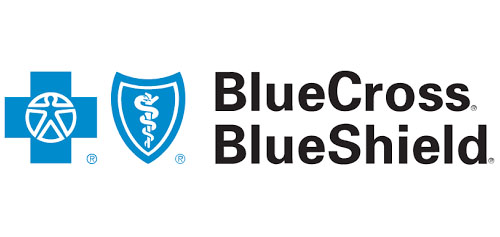
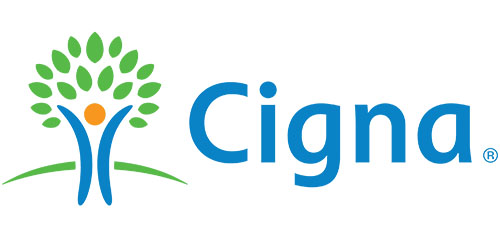

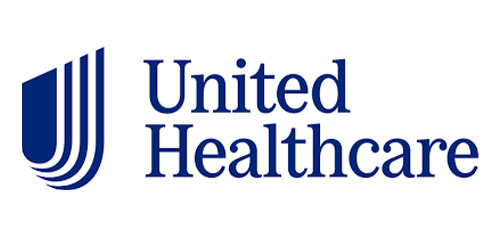
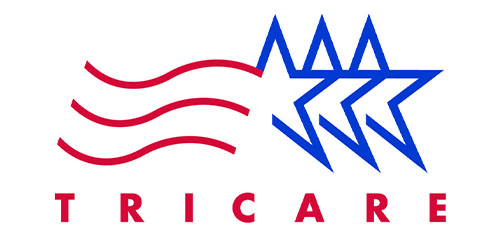
Sleep Apnea Symptoms
Sleep apnea is a sleep disorder characterized by brief interruptions of breathing during sleep. The following are common symptoms and health issues associated with sleep apnea:
- Excessive daytime sleepiness
- Loud snoring
- Awakening with a choking or gasping sensation
- Insomnia or difficulty falling asleep
- Restless tossing and turning during sleep
- Awakening with a dry mouth or sore throat
- Morning headache
- Decreased attention and concentration
- Irritability and mood changes

Sleep Apnea is Serious

Sleep apnea can also lead to more serious health problems, such as:
- High blood pressure
- Heart disease
- Stroke
- Type 2 diabetes
- Depression and anxiety
- Memory and learning problems
- Decreased libido
Treatments for Sleep Apnea
If you suspect that you have sleep apnea, it’s important to see a doctor for a proper diagnosis and treatment. The traditional treatments for sleep apnea include:
- Continuous Positive Airway Pressure (CPAP): This involves wearing a mask over the nose and/or mouth to deliver a constant flow of air to keep the airway open.
- Oral appliances: These are custom-fit devices that are worn in the mouth and reposition the jaw and tongue to prevent collapse of the airway.
- Lifestyle changes: Making changes to your lifestyle, such as losing weight, avoiding alcohol, and sleeping on your side can help alleviate the symptoms of sleep apnea.
- Surgery: In some cases, surgery may be recommended to remove excess tissue from the throat or reposition the jaw to open the airway.
- Behavioral therapy: This may include techniques such as breathing exercises, relaxation techniques, and avoiding caffeine and nicotine.
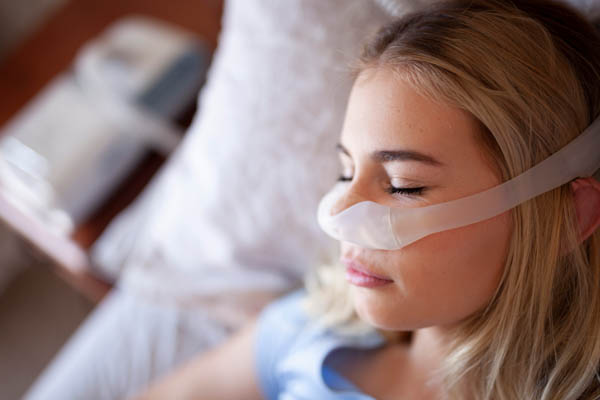
Toshi Hart Dentistry has been helping people just like you for over 20 years overcome the suffering caused by Sleep Apnea, TMJ, Snoring, and breathing issues without medications, painful surgery, or having to be tied to a CPAP machine for the rest of your life. Dr. Hart treats the root cause of these issues instead of just masking the symptoms. Many of her patients are finding complete relief from these sometimes-life-threatening health issues and are now reporting a quality of life that they have not experienced in years.
Schedule a FREE Consultation Today
Sleep Apnea Can Lead to Serious Health Issues

- Cardiovascular disease: Sleep apnea is associated with an increased risk of high blood pressure, heart attacks, and stroke.
- Cognitive and mental health issues: People with sleep apnea may experience fatigue, irritability, depression, and memory problems.
- Type 2 diabetes: Sleep apnea can lead to insulin resistance and an increased risk of developing type 2 diabetes.
- Motor vehicle accidents: People with untreated sleep apnea are more likely to experience fatigue, which increases the risk of accidents while driving or operating heavy machinery.
- Work-related accidents and decreased productivity: Sleep apnea can cause fatigue, decreased concentration and reaction time, which can increase the risk of work-related accidents and decrease productivity.
- Sleep deprivation: Sleep apnea can lead to chronic sleep deprivation, which has a negative impact on overall health and quality of life.
In addition, treating sleep apnea can lead to improved quality of life, including better sleep, increased energy, and improved mental and emotional health. Seeking treatment for sleep apnea as soon as possible can help prevent these serious health problems and improve overall well-being.
Your Jaw Size May Be the Cause of Your Sleep Issues
Dr. Hart is a leading expert in studying the jaw and its relationship to causing lifelong health issues. Jaw size and position can contribute to the development of sleep apnea by affecting the airway and its ability to remain open during sleep. The airway can become partially or completely obstructed due to several factors, including:
- Jaw size: A smaller jaw size can result in a narrower airway, making it more likely to collapse during sleep.
- Tongue size: A large tongue can partially obstruct the airway, leading to sleep apnea.
- Muscle tone: Reduced muscle tone in the airway can cause it to collapse more easily during sleep.
- Jaw position: The position of the jaw can also affect the airway. For example, if the jaw is positioned too far forward, it can push the tongue against the back of the throat and partially obstruct the airway.
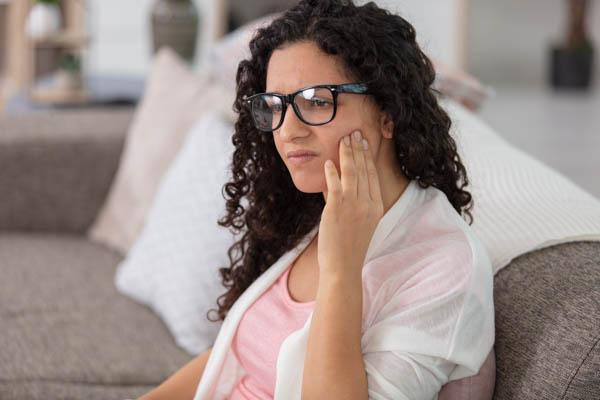
These factors can interact with one another to create or exacerbate sleep apnea. For example, a small jaw size combined with a large tongue and reduced muscle tone can lead to a greater likelihood of airway collapse and sleep apnea.
Treatment options, such as oral appliances or surgery, may be recommended to correct jaw size or position and improve airway function. However, the best course of treatment will depend on the individual’s unique needs and the underlying cause of their sleep apnea. This is where Dr. Hart can help you, she has all the tools in her office to diagnosis and properly treat your airway issues and re-align your jaw and help eliminate poor jaw position.
There Are Three Main Types of Sleep Apnea:
Obstructive Sleep Apnea (OSA)
This is the most common form of sleep apnea and occurs when the airway becomes partially or completely blocked during sleep, leading to repeated awakenings.
Central Sleep Apnea (CSA)
This type of sleep apnea is caused by a failure of the brain to transmit the correct signals to the muscles responsible for breathing.
Complex Sleep Apnea Syndrome
Also known as treatment-emergent central sleep apnea or treatment-emergent central apnea of treatment-emergent obstructive sleep apnea; This occurs when an individual has both obstructive sleep apnea and central sleep apnea.
Signs and Symptoms of Sleep Apnea
Key signs and symptoms that indicate you have obstructive sleep apnea (OSA), include:
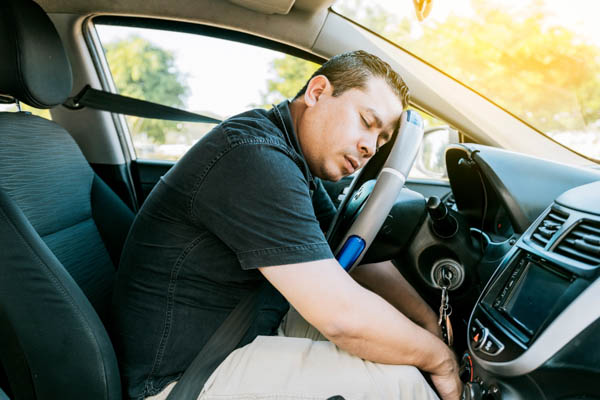
- Loud snoring: Loud snoring is a common symptom of OSA.
- Gasping or choking during sleep: People with OSA may experience periods of not breathing or gasping for air during sleep.
- Daytime fatigue: People with OSA may experience excessive daytime sleepiness or fatigue, even after a full night’s sleep.
- Morning headaches: OSA can cause headaches upon waking, due to decreased oxygen levels during sleep.
- Insomnia or trouble staying asleep: People with OSA may have trouble falling asleep or staying asleep, as they may repeatedly wake up due to episodes of not breathing.
- Attention and memory problems: OSA can cause decreased focus and concentration, as well as memory problems.
- Dry mouth or sore throat upon waking: People with OSA may experience dry mouth or a sore throat upon waking due to repeated awakenings and effort to breathe during sleep.
If you experience any of these symptoms, it is important to consult with Dr. Hart; she can determine if you have OSA and since she is a nationally recognized dental sleep medicine expert, she can get you into treatment immediately. A sleep study maybe recommended to diagnose OSA and determine the severity of the condition.
Schedule a FREE Consultation Today
Sleep Apnea Affects Your Heart
Sleep apnea can have a significant impact on the heart and cardiovascular system. This is due to the repeated disruptions in breathing that occur during sleep, leading to reduced oxygen levels in the blood, increased stress on the heart, and changes in the normal sleep-wake cycle.

The following are some of the ways sleep apnea can affect the heart:
- High blood pressure: Sleep apnea can increase the risk of high blood pressure (hypertension) and make it more difficult to control.
- Heart disease: Sleep apnea is associated with an increased risk of heart disease, including heart attacks and strokes.
- Arrhythmias: Sleep apnea can cause changes in heart rate and rhythm (arrhythmias), which can be serious and life-threatening.
- Heart failure: Sleep apnea can worsen heart failure, a condition where the heart is unable to pump enough blood to meet the body’s needs.
- Cardiac events: People with sleep apnea are at increased risk of cardiac events, such as heart attacks and sudden cardiac death.
It is important to address sleep apnea in order to reduce the risk of heart disease and improve cardiovascular health. If you are concerned about the impact of sleep apnea on your heart, it is essential to consult with Dr. Hart who is a sleep specialist that can evaluate your condition and prescribe a course of treatment.
Sleep Apnea and Diabetes are Deadly Partners
Sleep apnea and diabetes are conditions that can have a significant impact on each other. Here's how sleep apnea can affect diabetes:
Blood Sugar Control
Sleep apnea can disrupt normal sleep patterns, leading to hormonal changes affecting insulin sensitivity and control. This can make it more difficult to manage diabetes.
Increased Risk
People with sleep apnea are at increased risk of developing type 2 diabetes, and people with diabetes are at increased risk of developing sleep apnea.
Poor Sleep Quality
People with sleep apnea often experience poor sleep quality and excessive daytime sleepiness, which can negatively impact their ability to manage diabetes.
Weight gain
Sleep apnea can cause weight gain, which is a risk factor for both diabetes and sleep apnea.
7 Factors that make Sleep Apnea Worse
There are many factors that can worsen sleep apnea, including:
- Obesity: Excess weight, especially around the neck, can put pressure on the airway and worsen sleep apnea.
- Alcohol consumption: Alcohol consumption can relax the muscles in the airway and worsen sleep apnea.
- Sedative use: Sedatives can relax the muscles in the airway and worsen sleep apnea.
- Smoking: Smoking can increase inflammation in the airway and worsen sleep apnea.
- Nasal congestion: Nasal congestion can cause breathing difficulties during sleep and worsen sleep apnea.
- Sleeping position: Sleeping on your back can worsen sleep apnea by increasing the risk of airway obstruction.
- Sleep deprivation: Lack of sleep can worsen sleep apnea by increasing the risk of airway obstruction and reducing the effectiveness of treatment.

FAQ
Is snoring a sign of sleep apnea?
Snoring is a common symptom of sleep apnea, but not everyone who snores has sleep apnea. Sleep apnea is a condition where the airway becomes partially or completely blocked during sleep, leading to repeated awakenings and disruptions in breathing. Snoring occurs when the vibration of the tissues in the back of the throat causes noise during sleep. However, snoring can be a sign of sleep apnea if it is accompanied by other symptoms such as choking or gasping for air, excessive daytime fatigue, and frequent awakenings during the night.
If you snore frequently and experience other symptoms of sleep apnea, it is important to consult with Dr. Hart. A sleep study may be recommended to diagnose sleep apnea and determine the severity of the condition.
What increases the risk of having sleep apnea?
There are several factors that can increase the risk of developing sleep apnea, including:
- Age: Sleep apnea is more common in middle-aged and older adults, although it can occur at any age.
- Obesity: Excess weight, especially around the neck, can put pressure on the airway and increase the risk of sleep apnea.
- Gender: Men are more likely to develop sleep apnea than women.
- Family history: A family history of sleep apnea can increase the risk of developing the condition.
- Smoking: Smoking can increase inflammation in the airway and increase the risk of sleep apnea.
- Alcohol and sedative use: Alcohol and sedative use can relax the muscles in the airway and increase the risk of sleep apnea.
- Nasal congestion: Nasal congestion can cause breathing difficulties during sleep and increase the risk of sleep apnea.
- Neck circumference: A larger neck circumference can indicate an increased risk of sleep apnea.
It is important to note that having one or more of these risk factors does not
guarantee that an individual will develop sleep apnea and some people with
sleep apnea may not have any known risk factors. If you are concerned about
sleep apnea, it is important to consult with a doctor, who can refer you to a
sleep specialist for further evaluation and treatment if necessary.
What makes sleep apnea worse?
There are several factors that can increase the risk of developing sleep apnea, including:
- Age: Sleep apnea is more common in middle-aged and older adults, although it can occur at any age.
- Obesity: Excess weight, especially around the neck, can put pressure on the airway and increase the risk of sleep apnea.
- Gender: Men are more likely to develop sleep apnea than women.
- Family history: A family history of sleep apnea can increase the risk of developing the condition.
- Smoking: Smoking can increase inflammation in the airway and increase the risk of sleep apnea.
- Alcohol and sedative use: Alcohol and sedative use can relax the muscles in the airway and increase the risk of sleep apnea.
- Nasal congestion: Nasal congestion can cause breathing difficulties during sleep and increase the risk of sleep apnea.
- Neck circumference: A larger neck circumference can indicate an increased risk of sleep apnea.
It is important to note that having one or more of these risk factors does not guarantee that an individual will develop sleep apnea and some people with
sleep apnea may not have any known risk factors. If you are concerned about sleep apnea, it is important to consult with a doctor, who can refer you to a
sleep specialist for further evaluation and treatment if necessary.
Can sleep apnea be severe?
Severe sleep apnea can have serious health consequences, including an increased risk of high blood pressure, heart disease, stroke, and depression, as well as decreased cognitive function and decreased quality of life. People with severe sleep apnea often experience excessive daytime sleepiness, trouble concentrating, and
morning headaches.
Dr. Hart has helped Modesto Overcome Sleep Apnea

If you are experiencing symptoms of sleep apnea, it is important to consult with Dr. Hart. Dr. Hart may recommend a sleep study to diagnose sleep apnea and determine the severity of the condition.
Based on the sleep test results Dr. Hart will be able to determine the most effective treatment to treat the root cause, not mask the symptoms.